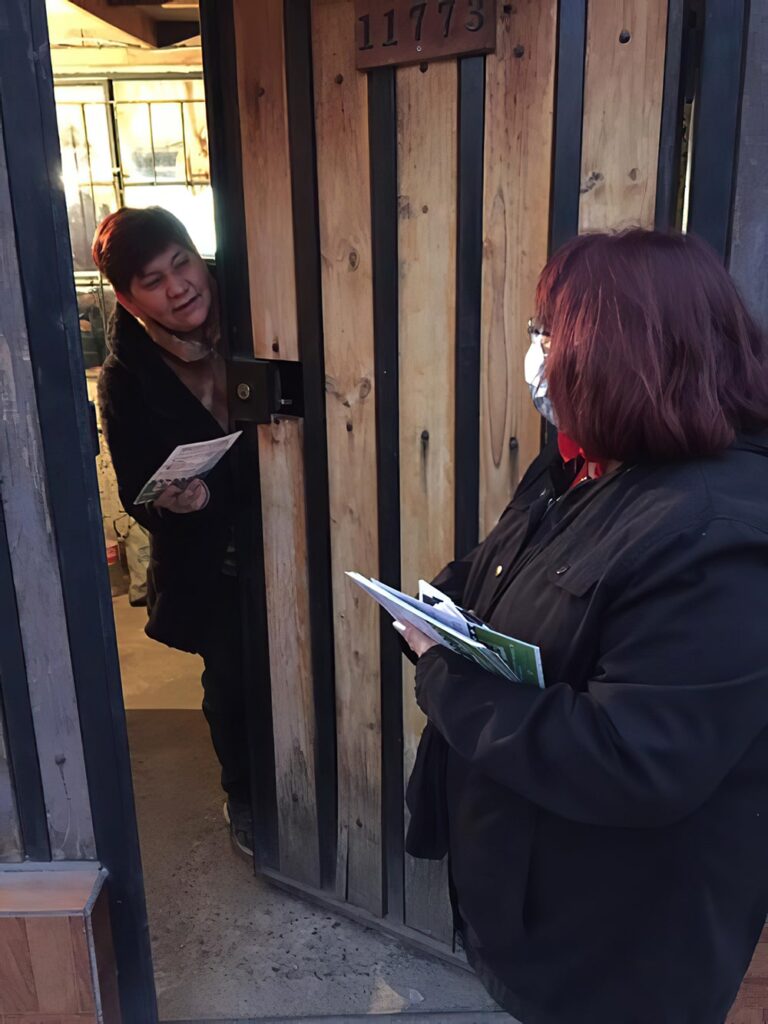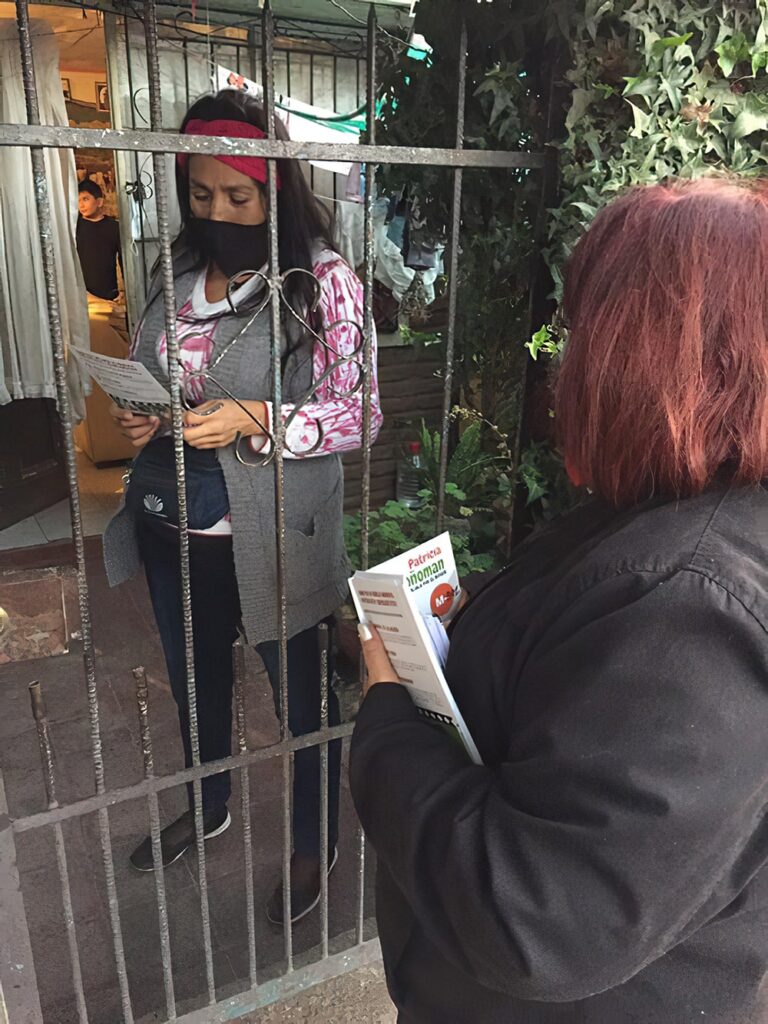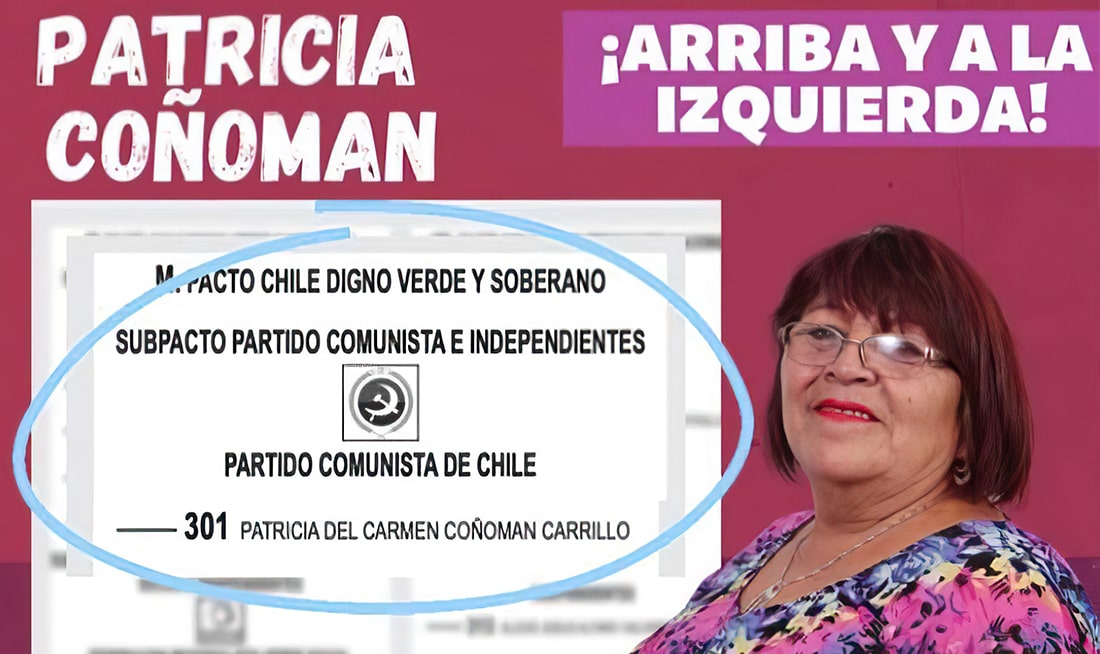An Interview with Patricia Coñoman, newly elected Councilwoman of the municipality of El Bosque
Who is Patricia Coñoman?
Patricia Coñoman’s trajectory
Patricia Coñoman was a textile worker for many years. She was part of the National Textile Confederation in Chile between 1975 and 2015 where she served as the first female president.
She was a leader of the Central Unitaria de Trabajadoras between 1988 and 2017 where she was in charge of the Women’s department. She was also responsible for the Sports, Recreation and Culture department and the Indigenous Peasant department.
She is currently one of the coordinators of CONATRADO Chile and member of the International Working Committee of HNI.
Can you give us a brief history of home-based workers in Chile?
Home-based work has always existed, but it has been largely ignored. In Chile, home-based work was regulated and was part of the Labor Code. However, when the Pinochet dictatorship arrived and the free market economic model began to be implemented, home-based work was removed from the Labor Code.
I discovered home-based work when I started doing collective bargaining for workers as a labor advisor at the National Textile Confederation (CONTEXTIL). I realized that textile employers had a lot of fabric cuts and little tailoring done in their own workshops, so I asked myself, where do they take those fabric cuts? The answer was that they took them to the workers’ homes.
At the end of the 1980s, textile companies in Chile began to go bankrupt due to the strong competition from Asian companies. We realized that the compensation received by the workers for their years of service in the companies was sewing machines. This is how the businessmen realized that it was not necessary to hire workers in their factories or workshops. Of course, for them this represented a great fortune, because they only brought the fabric to the workers’ homes and did not have to pay for electricity, water or social security.
Tell us an anecdote about your time in the trade union world.


Why did you run for Councilwoman for the commune of El Bosque?
I ran for Councilwoman for two reasons: one because I am a union leader of home-based workers and the other is because I represent native people, two marginalized sectors in Chile.
What were the key factors that led you to be elected as Councilwoman?
I believe that one of the main factors that led me to win is that this country is tired of arrogance. People want to be told the truth, with strength, humility and without fear. I think that has allowed people to vote for someone like me.
What does your new position as Councilwoman mean for home-based workers in Chile?
This new mandate means a lot for home-based workers, it means that we will be able to receive more help and we will also learn along the way. This will be a new learning experience to be shared, because if we can do it in Chile it can be done in other countries as well.
What message would you give to home-based worker leaders around the world?
I would tell them that anything is possible. We have to be daring, and believe that we are capable of leadership. As long as we are not at fault, people will believe us and will elect us. I would call on all comrades to educate themselves to be able to reach these leadership positions, because if you win, you do not win alone, you win with your organization and with the people you want to defend.



